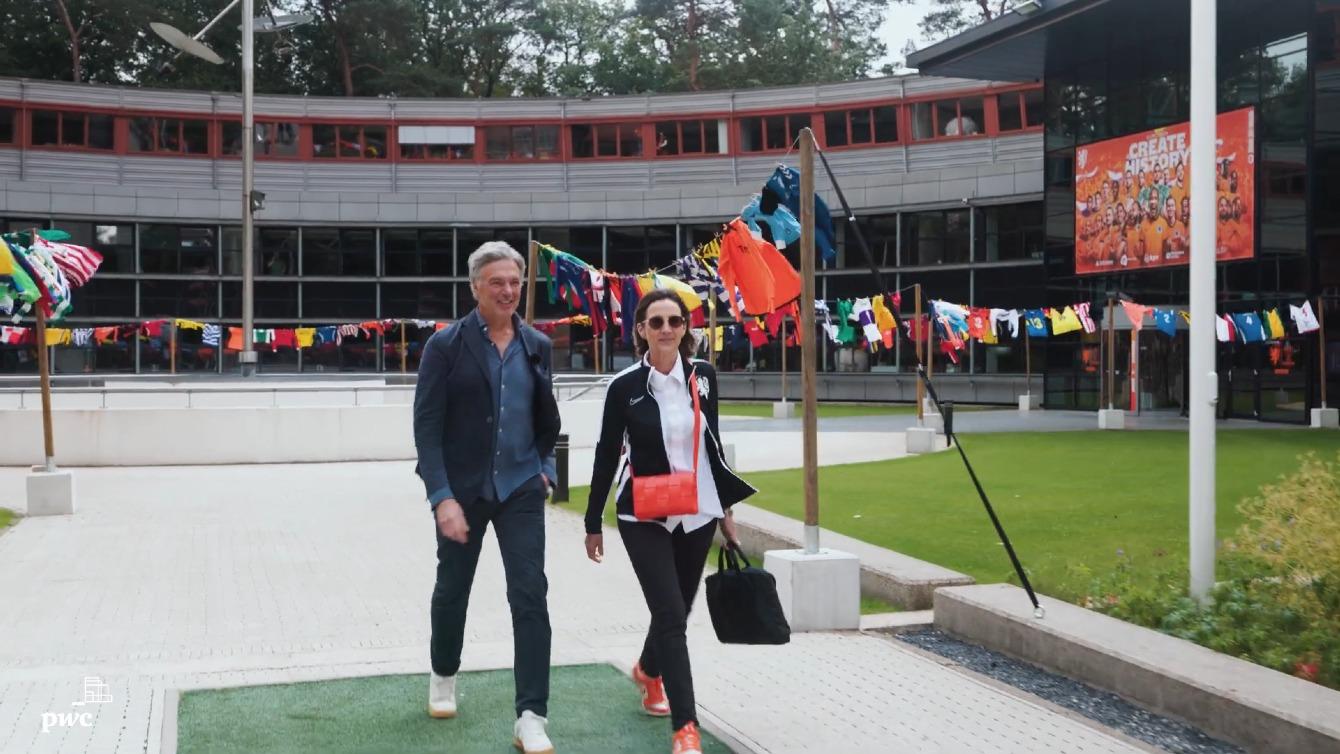On the road to the European Championship in Germany, journalist Paul Laseur talks to Marianne van Leeuwen in a special edition of 'CEOs on course'. They discuss, among other things, the social impact of football, the importance of diversity and her unexpected appointment.
‘I was also surprised when the KNVB called me three years ago,' Van Leeuwen reflects. 'At the time, I was chair of Amsterdam football club Zeeburgia, but otherwise I was not active in the football world. I had been in the corporate world for a long time. I was CEO of Reed Elsevier untill 2011. Then I took a break to spend more time with my growing children. They had just started secondary school and I was a single mother. During that time, I did a couple of supervisory directorships.'
S1#8: KNVB director Marianne van Leeuwen
'Our strategy does not only consist of winning a European Championship or World Cup,' says Marianne van Leeuwen, director of professional football at the KNVB, in a special episode of 'CEOs on course' . Ensuring hospitable and safe football, and diversity are also important goals of the Football Association.
-
Closed captions
-
Transcript
-
Full screen
-
Share
-
Closed captions
Experience in corporate organisations
'You can certainly compare the KNVB to a corporate organisation. As a manager, you set the strategy together with other directors. You set measurable goals and make sure that all employees understand them. And you make sure that we're all moving in the same direction.'
'What is different about the KNVB is that everyone is constantly looking over your shoulder and trying to think along with you. That you get unsolicited advice from outside and that there are people who are eager to say or write something negative about you. Of course, this was already the case when I started. The attitude was: "What is she doing here? She knows nothing about professional football". I just don't respond to that. I do my job to the best of my ability and look at the results.'
Social impact of professional football
Van Leeuwen is satisfied with these results. Regular research by PwC, the KNVB's strategic knowledge partner since last year, shows that the impact of football on society is increasing in a positive way. 'Our strategy is not just about winning a European Championship or World Cup. We are also there for the 2,800 amateur clubs in the Netherlands. We want their membership numbers to continue to grow, and as part of that, we are trying to get more girls to play football. Another important goal for us is to ensure a hospitable and safe game. Issues such as safety in stadiums are something we really need to work on together.'
'Diversity is an important topic for the KNVB. I'm thinking in particular of cultural diversity. Before my time, the KNVB already had a great programme called “Ons voetbal is van iedereen" (“Our football belongs to everyone”). That was a plan of attack against all forms of discrimination. It also included getting more women into management positions. We have come a long way in the last few years. The outside world may still see the KNVB as a male stronghold, but that is no longer the case.'
Curious to see or hear the full interview with Marianne van Leeuwen?
Follow our video and podcast series ‘CEOs on course’.


















